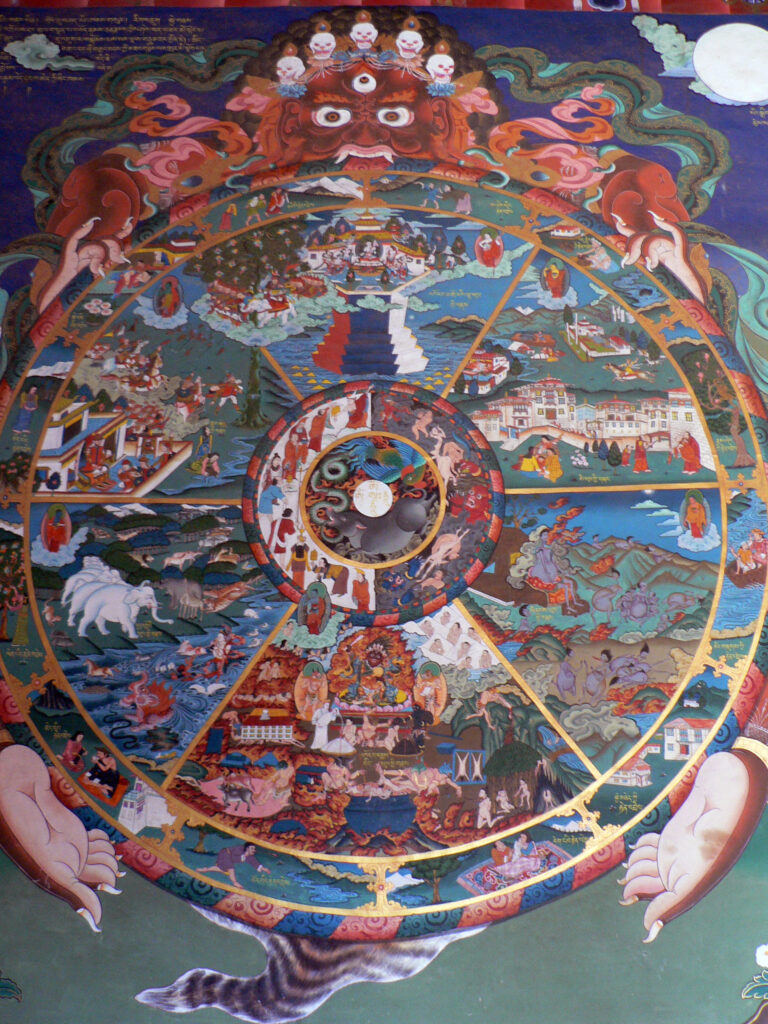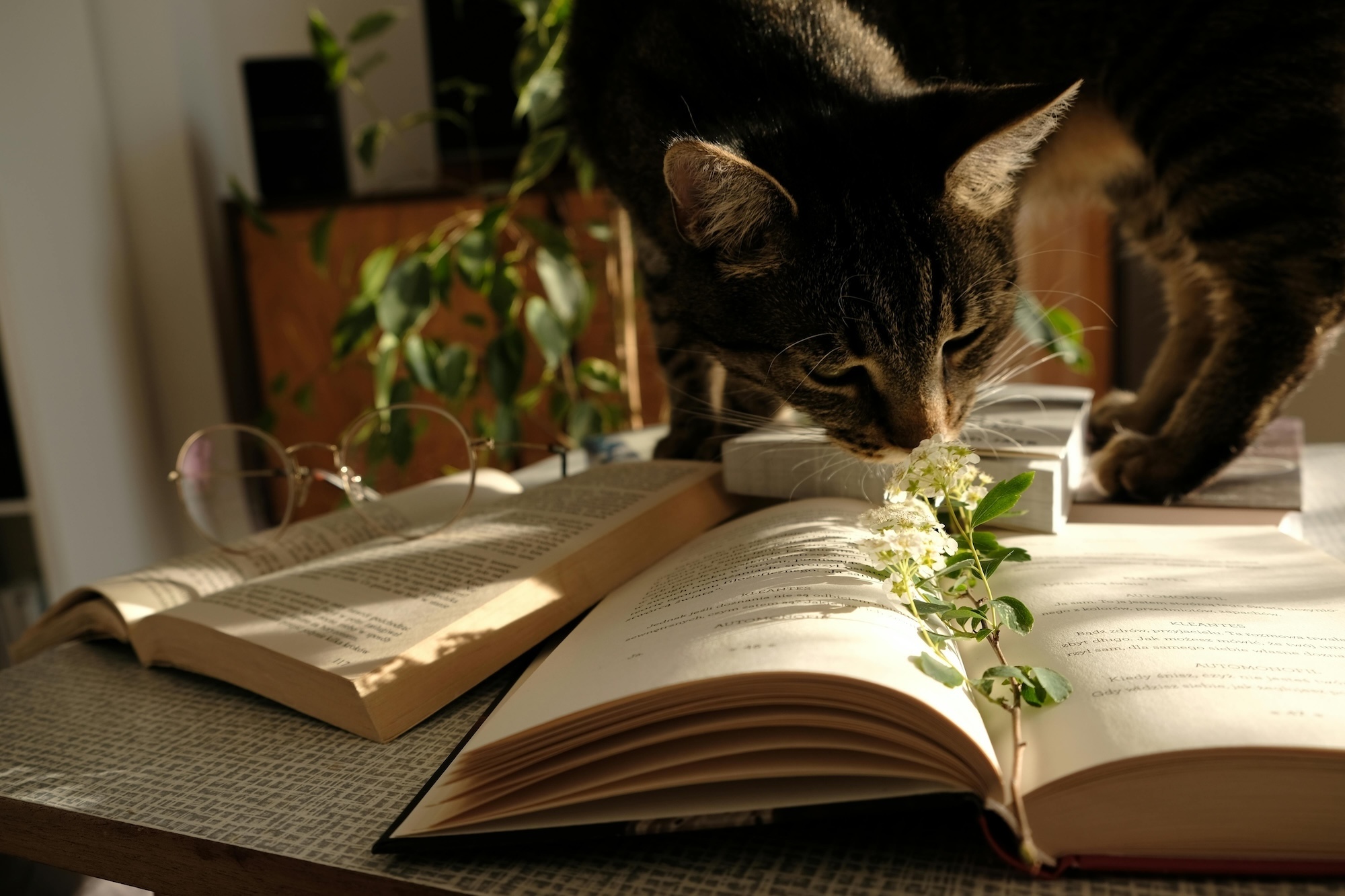If you’re familiar at all with Buddhism, you’ve no doubt encountered the concept of Samsara. Basically, it’s life, as we experience it, over endless cycles of rebirth. According to Buddhist teachings, we are trapped here, living in these ‘realms’ of existence until after many lifetimes of dedication and practice, we are able to reach Nirvana – true liberation.
There are six realms within the cycle of Samsara, and they exist on a wheel, meaning that we don’t travel through them in a linear fashion toward a goal. Heaven and Hell are both part of Samsara and not attached to western ideas of reward and punishment. The six realms are:
- Hell – the realm of anger
- Preta (The Hungry Ghost) – the realm of greed
- Animal – the realm of ignorance
- Human – the realm of desire and attachment
- Asura (Semigod) – the realm of jealousy and envy
- Heaven – the realm of pride
Some branches of Buddhism (and Hinduism, Jainism, etc.) believe in this concept literally. In my own zen practice, I view them as states of being that I experience in my life and which cause deep suffering.
A couple weeks ago I was reading and discussing a book with my regular Thursday morning zen group. That week, I’d also been experiencing a great deal of creative frustration over this novel that I’m writing. As we read through a passage about Samsara, I began to see my own pattern of creative work reflected back to me. In fact, I often cycle through multiple ‘realms’ of Samsara in a single week.
One day, I’m in Hell. Furious at the lack of inspiration that I feel entitled to whenever I want it. Then I’ll go into the Human realm, attached to outcomes for my work, fantasizing about what it will be like when I’m finished with it. Some days I’m in Asura, jealous of the other writers I see online and their successes. Then to Heaven, the realm of pride, when I find someone else struggling harder than me, or I write something particularly good and convince myself I’m some kind of creative genius. And so on.
These various states of mind take me on a wild, unpredictable ride, spinning me into various emotional states. I cling to my ego, relinquishing control to this rollercoaster ride that never ends. I suffer. And so does my work.
It occurred to me, however, that in both Buddhism and in creative work, the answer to freeing ourselves from such suffering is often the same: release the ego, practice our discipline unfailingly, and accept what comes. Practically every book I’ve ever read about ‘how to be a writer’ offers this advice in some form or fashion, with many writers insisting that our creativity isn’t actually from us. When we identify ourselves with our work, when we let our ego run the show, we close ourselves off to some kind of universal energy that produces true art. Over and over again I’ve read the same thing from the likes of Stephen King, Natalie Goldberg, Julia Cameron and Stephen Pressfield: get the fuck out of your own way.
I’ve been taking a new approach this week and I’m delighted to report that it’s working. Rather than imposing a schedule that I think I should be using, I’ve listened to my ‘muse’ – which I define as my higher egoless self – and let her set the agenda. She gets priority over everything else. I don’t question her or have expectations. Rather, I’m just showing up to work each day, first thing (after I do morning meditation and writing practice), and I do the writing with detachment.
From this position, I can think critically about my own work without falling into a pity party or getting pissy that things aren’t happening the way I think they should be. I quickly get into flow, and before I know it, I’ve spent three solid hours channeling creative energy into my keyboard and onto my screen. Time flies by, and when I’m done, I don’t feel either elated or depressed. Because it is what it is. That which is good, I can keep. That which is not, doesn’t hurt to cut away.
Working this way is a relief. I no longer feel pressure, nor do I care what anyone thinks about my work, because it’s not really mine. It’s not coming from me. I’m a scribe. A utensil in the hands of something greater than my little self. My job is to keep showing up, to maintain discipline in my focus and work habits, and to maintain the detachment that gives me objectivity around my own writing so I can make good choices.
This concept isn’t new to me. As I’ve said, I have read similar advice for years. The difference is, I’m ready to listen, now. Because I’m finally tired of suffering.





